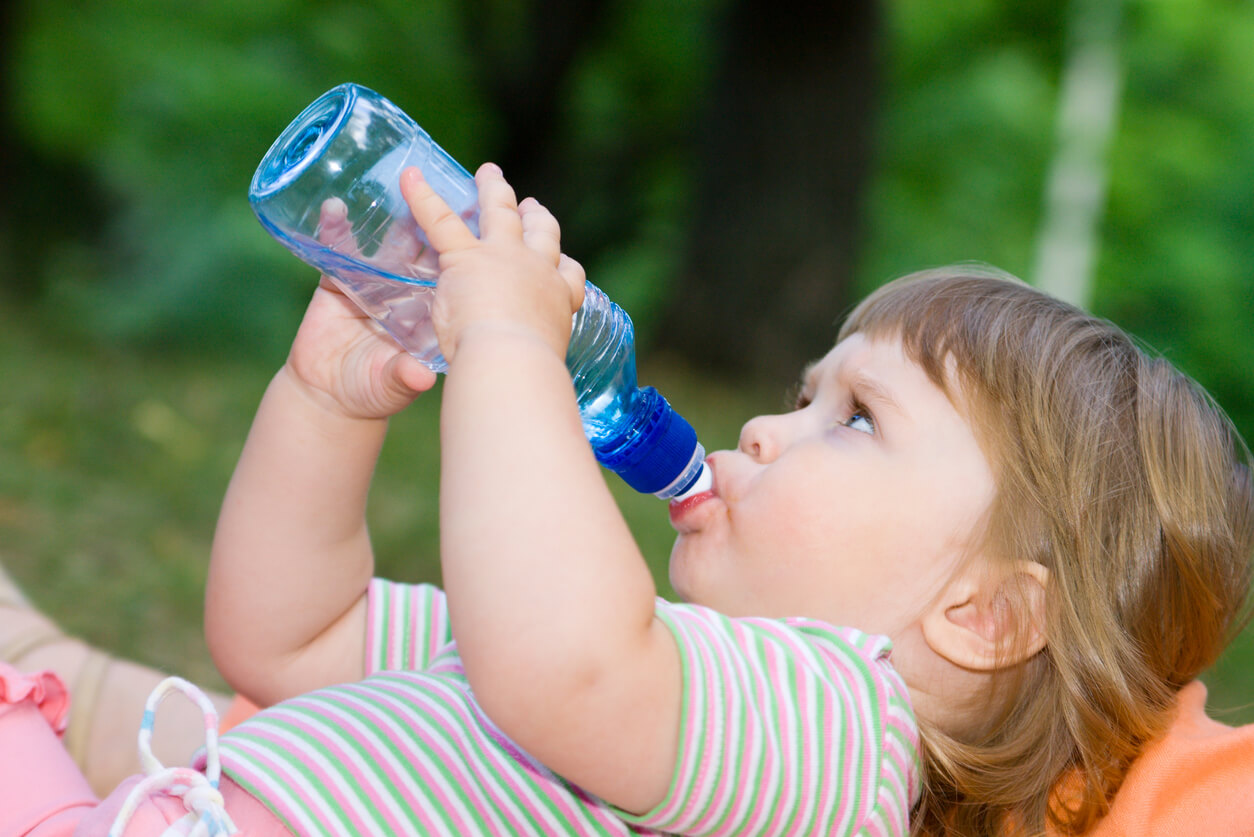Feeding Children During the Summer
Kids' diets usually undergo a series of modifications in summer. Keep reading to learn how to go about feeding children during the summer.

Feeding children in the summer often involves a number of changes in summer, especially due to the prominence of fresh and sweet products, such as ice cream. However, it’s important to follow a series of basic rules to ensure an adequate supply of essential nutrients and to prevent situational foodstuffs from replacing higher-quality foods.
It’s clear that in order to ensure good development, it’s essential to assure a harmonious dietary pattern and promote a healthy lifestyle. Although certain foods have a place in a balanced diet, it’s best not to abuse them so as not to exceed the recommended intake of simple sugars for the day. Keep reading to learn more about feeding children in the summer.
First, plan the main summer meals
When it comes to children’s summer diet, it i’s essential to focus on planning the main meals. These should always ensure the presence of high-quality proteins, ideally those that come from foods of animal origin. These nutrients have all the essential amino acids within them and have an optimal digestibility score. They are also important for the growth of young children, according to a study published in the journal Nutrients.

Include a good portion of fruits and vegetables
At the same time, including vegetables in abundant quantities makes a great difference. Nutrition experts recommend the presence of at least 5 servings of fruits and vegetables in the daily diet, as they’re a source of antioxidants of the highest quality. We’re talking about a series of compounds that neutralize the formation of free radicals and prevent their accumulation in the body’s tissues. In fact, they’ve been shown to contribute to a reduced risk of suffering diseases in the future.
Limit the presence of ultra-processed foods when feeding children during the summer
In summer, it’s common for more ultra-processed foods to appear in children’s diets than in other seasons, mainly ice cream. The important thing is that these are included in the context of a varied and balanced diet. It’s clear that the concentration of sugars in these foods is high, but this won’t be entirely problematic if physical activity is ensured every day.
When choosing processed foods for children, the most important thing to note on the label is that they don’t contain poor-quality trans fats. These compounds can increase the levels of inflammation in the internal environment and increase the risk of metabolic diseases.
Hydrate with sufficient quantities of water
Once the protein and vegetable intake has been assured, it’s also essential to place special emphasis on the state of hydration. During the hot season, more fluids than usual are lost through sweating. It’s therefore essential to compensate for these losses by drinking natural mineral water to maintain an optimal water balance.

Avoid carbonated beverages
As a general rule, it’s best to avoid juices and soft drinks due to their high concentration of simple sugars. When these drinks are consumed in large quantities and on a regular basis, their carbohydrates can increase the risk of developing metabolic diseases such as type-2 diabetes. For this reason, it’s important to moderate their presence in the diet and always opt for complex carbohydrates, such as starch.
Feeding children involves substantial changes
As you’ve seen, the diet of children usually undergoes a series of modifications in summer, so it’s important to be attentive. Adapting their diet in order to ensure variety and nutritional balance is the main objective. In short, the most important thing is to ensure that there are no deficits or excesses so that the body can function properly.
However, it’s not only what you eat that matters in preventing disease, but also the maintenance of a series of additional healthy habits. In this regard, it’s best to promote regular physical exercise and a good night’s rest. Exposure to sunlight will also make a difference over the years and ensure optimal vitamin D synthesis.
